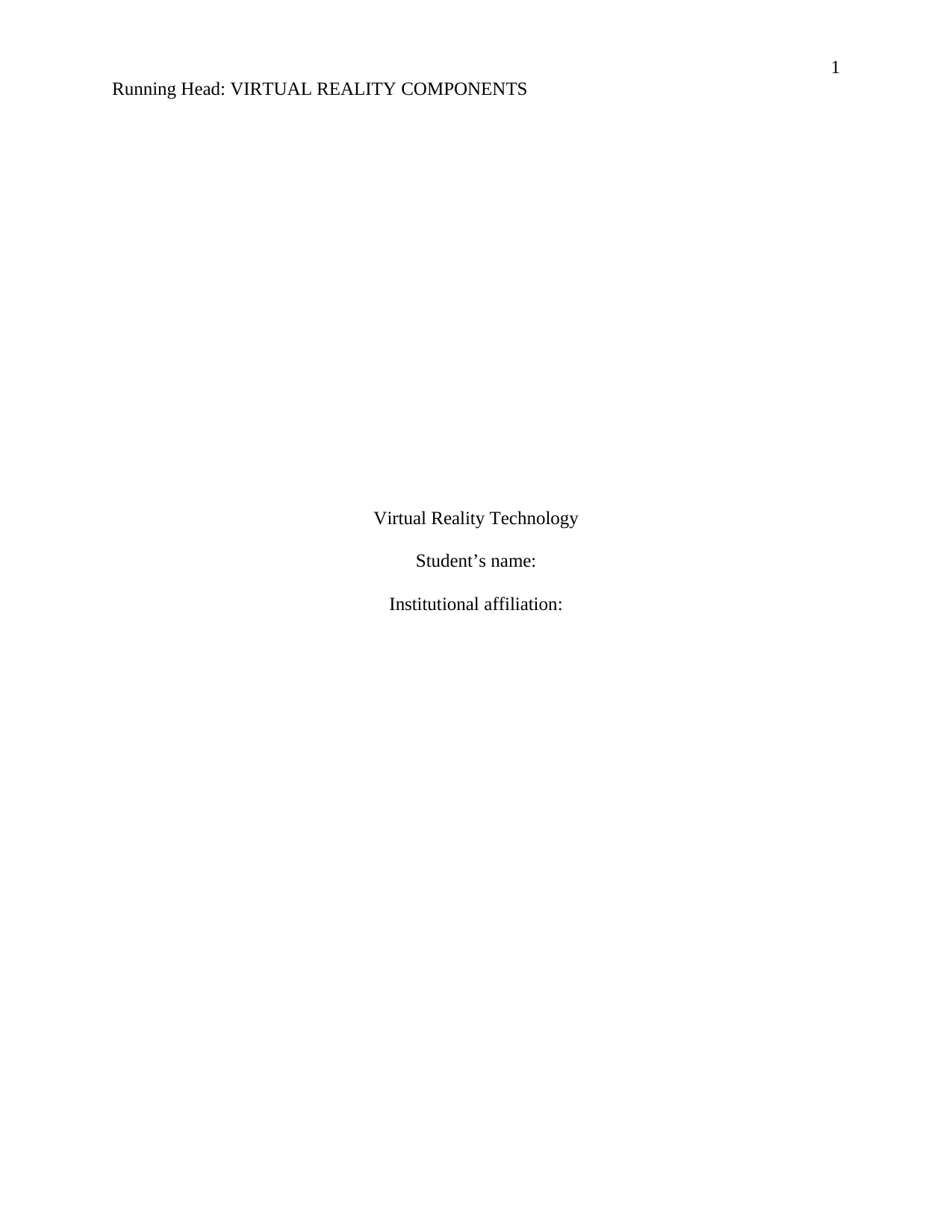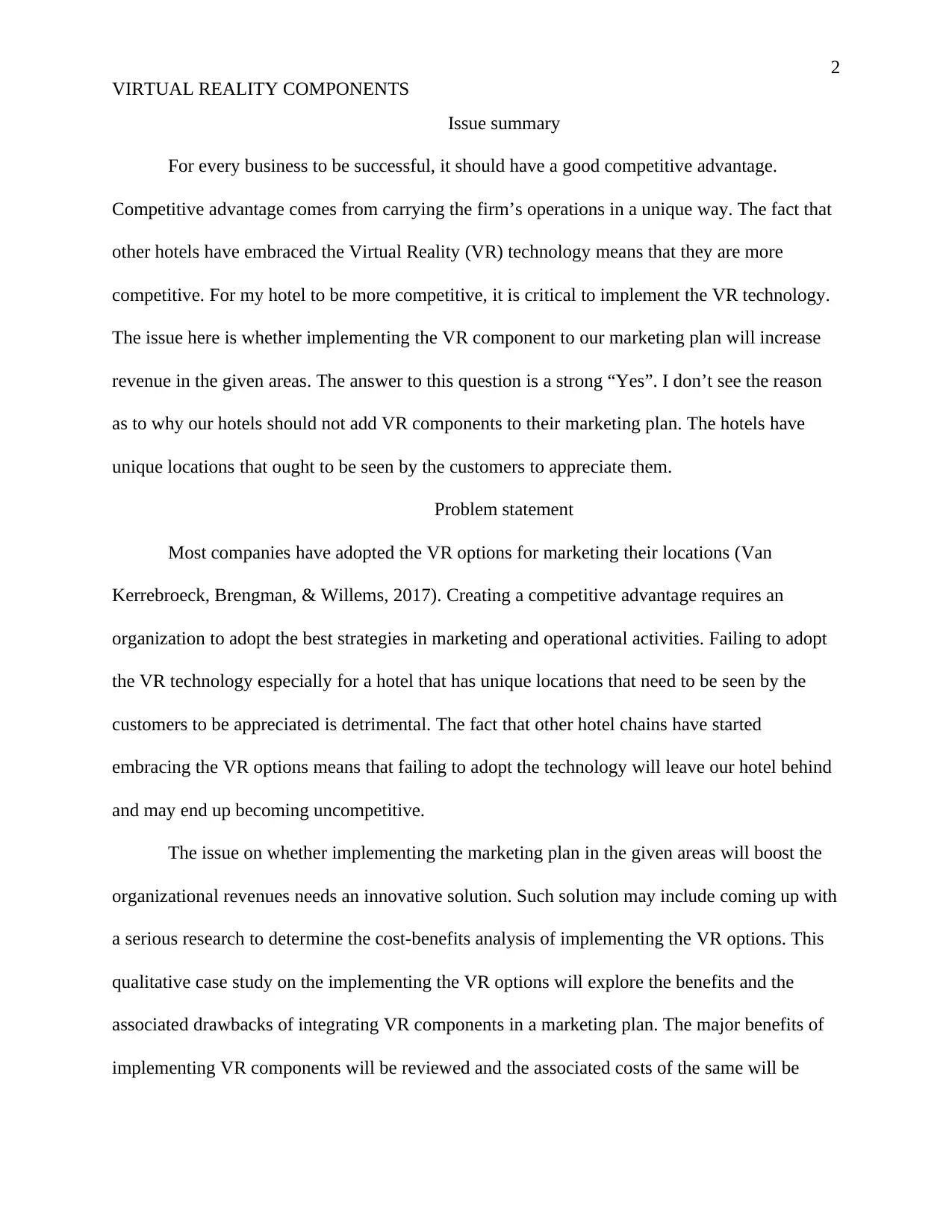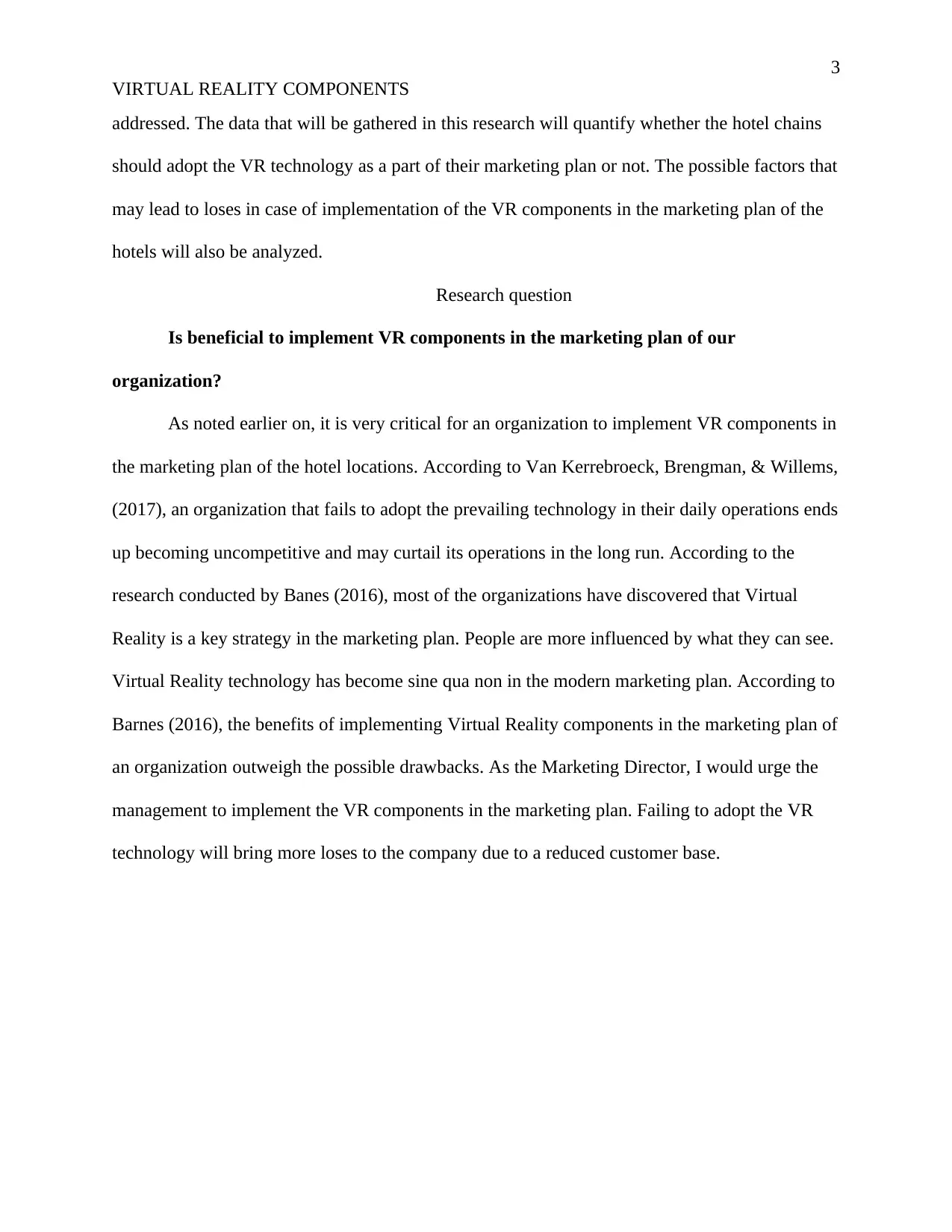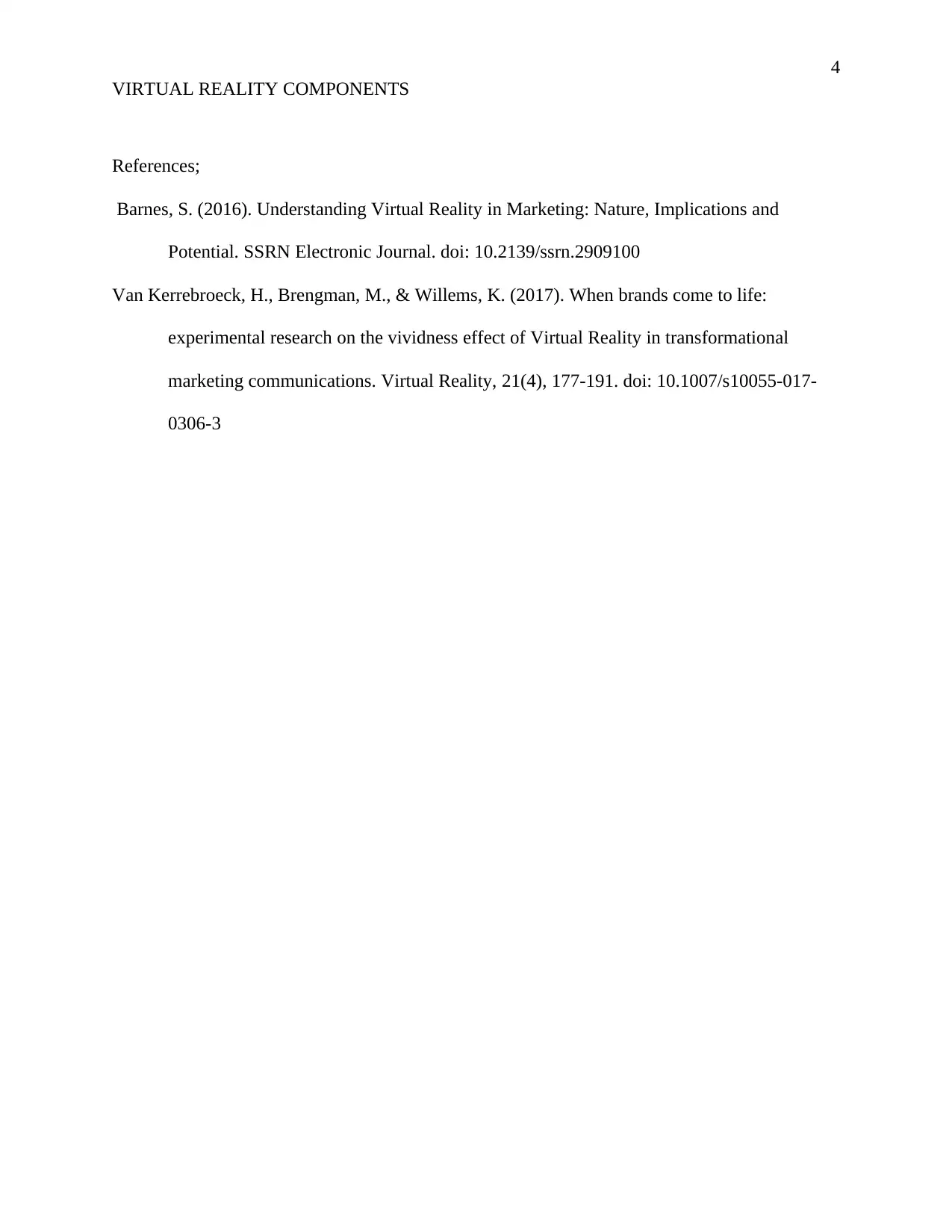Analysis of Implementing VR Components in Hotel Marketing Plan
VerifiedAdded on 2023/06/11
|4
|701
|464
Report
AI Summary
This report assesses the strategic implications of integrating Virtual Reality (VR) components into hotel marketing plans, addressing the critical issue of competitive advantage. It examines the potential revenue increase from VR implementation, highlighting the need for hotels to adopt this technology to remain competitive. The report includes a qualitative case study analyzing the benefits and drawbacks of VR in marketing, focusing on cost-benefit analysis and potential risks. It references existing research supporting VR's effectiveness in marketing and advocates for its adoption to avoid customer base reduction. The research question centers on the benefits of VR implementation, emphasizing its potential to enhance marketing efforts and overall competitiveness within the hotel industry.
1 out of 4







![[object Object]](/_next/static/media/star-bottom.7253800d.svg)